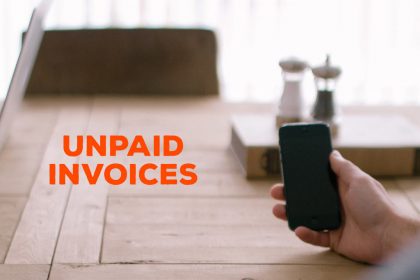How to deal with common freelance problems
Thinking of going freelance? Or already enjoying life as a freelancer, but struggling with aspects of the job? Find out how to deal with common freelance problems.
Freelancing is a fantastic career for many people, not least of all ambitious mums who want to continue working AND be there for their children.
As a freelancer, you pick when, where and for who you work. You work on a varied number of projects are are free to manage your own time and set your rates.
However, freelancing isn’t always easy. How do you find work in the first place? How much should you charge? And what do you do with tricky clients?
To help you make a success of freelancing (and enjoy it) the people at Advanced Writers share some of the common problems you may face as a freelancer – and how to deal with them.
Managing your money
Freelancers are really a micro-business, and it’s important you treat yourself as one, especially when it comes to your finances.
From day one (or starting now if you haven’t already!) you need a professional system for handing your finances. This includes:
- Structuring your business in the most tax-efficient way.
- Hiring an accountant (or signing up to a cloud accountancy service).
- Creating terms and conditions and sharing them with your clients.
- Ensuring that clients agree to your T&Cs (and payment terms) when hiring you.
- Regularly updating your business books so you’re aware of your cash flow situation.
- Invoicing regularly.
- Checking and chasing client payments.
- Putting money aside for tax.
It’s also important that you are aware of how much you need to earn freelancing to cover your monthly outgoings. Unlike paid employment, there are no guarantees that you will earn a certain amount of money every month. Indeed there may be some months you earn a LOT and others you earn nothing.
As a freelancer you can’t afford to get excited by the rich months, feel like you’ve won the lottery and blow the lot on a shopping spree. If you do, you won’t have enough to cover the lean months when you don’t make enough to pay your essential bills.
If you can afford it, it’s good practice to put aside enough savings to cover three months of essential bills (this is separate to your tax savings – NEVER dip into them!). So if you do fall on hard times as a freelancer, you know you can at least cover the essentials.
You can read more good financial tips for freelancers in these articles:
- 10 cash flow mistakes you need to avoid
- What to do when a client doesn’t pay your invoice
- Why you should stop chasing unpaid invoices
Being your own boss
For many people, being their own boss is one of the most compelling reasons why they switch to freelancing. However, being your own boss isn’t always all it’s cracked up to be.
With no one watching over you to manage the quality of your work and ensure you meet deadlines, you need to take on this responsibility yourself. You also need to be prepared to make tough decisions for your freelancing business – including which clients to take on (and sack!) and how to deal with difficult situations.
You also need to have a clear idea of what your freelancing business stands for. What are your core strengths? And what are your weaknesses? What values are important to you? Which type of project and client do you most enjoy working for? What will make YOU stand out over and above other freelancers competing for the same projects?
These are all considerations you need to bear in mind. And as a solo entrepreneur, you often don’t have anyone to bounce ideas off and confirm whether you’re on the right track or not.
There are a number of ways to deal with this. Firstly you need to learn to trust your gut instinct; if a client or project feels wrong, then it may be a good idea to turn it down. Experience also helps – after a while you’ll understand more about why clients love you (your strengths) and what type of clients you prefer to work for.
You can also join freelance forums and networks and share advice, experience and problems with other freelancers who are ready with support and opinions. Some networks, such as IPSE’s Women in Freelancing Network even have face-to-face get togethers to help women share experiences and make connections. You can find out more about their events here.
Finding work
Networking is also an important way of building useful professional connections and finding work. But it’s not always easy when you have young children at home.
Luckily there are plenty of different types of networking opportunities to choose from. From organised local and national events and lunches, to ad-hoc networking opportunities such as baby groups and the school gates. (Don’t overlook the value of the latter – many a valuable business relationship has been forged over nappy chat!)
And it’s not just face-to-face that networking takes place. Social media makes it much easier to ‘meet’ people from all over the world – from other freelancers to potential clients needing your services. It’s also a great shop front for what you do. Over time you can use social media to share your expertise and establish your freelance brand (what you stand for and your core strengths).
On Twitter you can also join chat hours – specific times every week in which users chat. Chat hours can be location-based, industry-based, interest-based, or themed on pretty much anything. To find a list of the hours available, search for ‘Twitter chat hours <your country>’ on Google.
In fact, the internet holds unlimited opportunities to network – anywhere there may be potential clients or other professionals who may be useful to you is a chance to network.
Whether you are networking face-to-face or online, there are a number of simple rules that can help you be more successful:
- Have your ‘elevator pitch’ ready – find out how to prepare one here.
- Find out how you can help others – not launch in with me, me, me.
- Be proactive – don’t wait for people to approach you.
- Be polite and friendly, even if others are not – remember, YOU are your brand.
- Follow up afterwards – get in touch with new connections to build on your relationship.
Marketing yourself
Networking is just one way of finding work as a freelancer. It’s also important that you consider a marketing strategy. And to get started, you need to know the answers to some key questions:
- What type of client do you want to work for?
- What do they want or need from a freelancer?
- What’s your strength (and weakness)?
- What’s your USP? (The one thing that makes YOU special)
By understanding who you want to work for, you can make some assumptions about where to find them, and what type of messaging will appeal to them. You can talk to them about the problems you know they have, and reassure them that you can solve them.
And by understanding what you want from a client, and what you’re good at, you can recognise when the right client comes along, and genuinely convince them that you’re the right freelancer for them.
Once you know this, writing a marketing strategy becomes much simpler. You can find places to get your word out, and can confidently write about your services.
Here are just a few options for marketing your freelance services:
- Organic social media activity on the platforms your ideal clients use.
- Paid social media ads.
- Listing on freelance directories your dial clients use.
- Local (or national) advertising opportunities.
- Partnerships with other freelancers.
- Sponsorship.
- LinkedIn (find out how to write a profile that will attract clients here.)
You can also read 10 quick marketing tips for freelancers here.
Managing your time
It’s all too easy as a freelancer to feel that you need to take every job that comes your way, after all you don’t know when you may not have work. But while saying ‘yes’ to everything can be a good freelance strategy, you need to know when to stop.
Not every client is going to be right for you. Some require skills you don’t have, others will just be downright tricky. Others will take an age to pay you (if they do at all). So make sure you understand how to spot a difficult client and how to handle them.
Even if all your clients are lovely, you can’t realistically do all the work that comes your way sometimes. If you work every waking hour that’s available to you, seven days a week, something will eventually give. And most likely it will be your health or sanity (or both)!
So be clear with yourself about what your work capacity is – how many hours a day or week you can devote to freelance work – and only book in work that can be reasonably completed in that time. If an exciting new client comes along, or a loyal client has an urgent job, you can take a decision whether, on this occasion, you are going to accept it or not.
And sometimes you will want to. But as a rule, it’s wise to stick to your working hours. If you continually let them slip, you’ll find yourself falling into unhealthy working habits, resenting your clients and enjoying a poorer quality of life. On these occasions you need to be your own boss and get firm with yourself. Better to you say no to a job than push yourself over your limits – you’ll be a better freelancer, happier person and less stressed mum and partner if you do.
Setting your prices
And finally, many female freelancers particularly find this the hardest part of freelancing: setting (and sticking to) your prices.
Unlike a job you apply for, there’s not usually a set salary for freelancing. Clients will ask for your day or hourly rate, or ask you to quote for a project. And then all kinds of psychology comes into play, with thoughts including:
- How much are they willing to pay for this?
- What do other freelancers charge?
- How long will it take me to do?
- How much do I want to work on it?
- What price will make a client like me?
For women, that last thought is the most tricky. All too often, women get caught in a trap of wanting to be seen as ‘nice’. We don’t want other people to think we’re asking for things we don’t deserve, or being greedy by charging too much.
As a result, many female freelancers either under-value themselves, or end up doing a lot of extra work on projects for nothing (or almost nothing).
But in truth, if you set your prices too low, clients won’t value your work or your professionalism. And they may not even hire you, thinking you can’t be much good if you’re so much cheaper than everyone else.
You need to charge a fair price for your work, and that is:
- A fair market rate for the project and your ability.
- A price that the client will be happy to pay.
- A sum that you are happy to work for.
To help you charge a fair amount to clients, we recommend reading these articles:
- How to get over your fear and charge what you’re worth
- The complete guide to raising your freelance rates
- Four reasons why clients think you’re too expensive (and what to do about it)
Time zone issues
And finally, with modern communication options you no longer need to physically meet your freelance client for many projects. This is great for freelance mums because we can happily work from home around our children, without needing to travel to meet clients in their offices, or work in-house.
It also significantly increases your scope of work. With no physical boundaries, you can work for clients all over the world! The downside to this, however, are time zones. What if your client wants a chat at 5pm their time… when it’s 2am for you?
Most freelancers deal with the issue of different time zones by coming into a mutual compromise with their client, and finding a time that works for both. You can also keep in touch by email with questions and progress on the project as it unfolds – both of you able to pick u the others’ email at a convent time for you.
If some time zones really are an issue for you, simply avoid clients in those regions. After all, with the whole world to choose from, you won’t be short of alternatives!
Enjoy problem-free freelancing!
Freelancing is be a wonderful way to follow your passion – to do work you are good at and love, and work around your family on your terms. And hopefully, with the advice you have read in this article, you can build a successful freelance career.
Advancedwriters.com offer custom writing services for your needs, including essays, research papers, reviews, speeches, reports, Powerpoint presentations, case studies, business plans and more.










